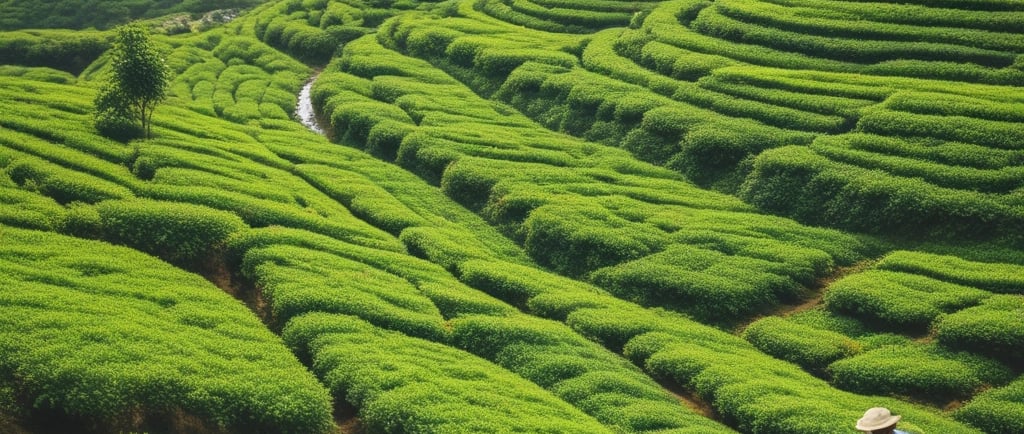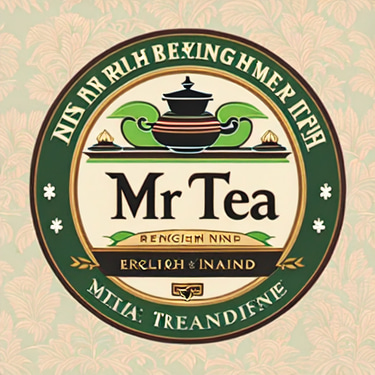Key Factors to Consider When Bulk Buying Tea Harvesting Equipment
When bulk buying tea harvesting equipment, prioritize factors like machine durability, efficiency, and adaptability to various terrains. Ensure the supplier offers reliable after-sales support, including maintenance and warranty services. Consider the total cost of ownership, including shipping, installation, and training. Evaluate machine compatibility with your farm’s size and specific needs, and compare models to find the best value for your investment.
4/21/20254 min read


Understanding Your Tea Production Needs
Before proceeding with a bulk purchase of tea harvesting equipment, it is essential to thoroughly assess the specific needs of your tea production process. This evaluation is crucial, as the equipment you select will significantly influence both the efficiency and quality of your harvesting operations. One of the primary factors to consider is the scale of your tea production. Different operations, whether small-scale artisanal farms or large industrial plantations, will require varying types and quantities of equipment.
Additionally, the type of tea being harvested plays a vital role in determining which equipment is most suitable. For instance, the harvesting techniques for delicate varieties such as oolong or green tea may differ from those used for robust black tea. Understanding the unique attributes of your tea types, including the optimal maturity stage for harvesting, will facilitate informed choices when selecting harvesting machinery.
Seasonal variations also contribute to the specific requirements of your tea production. For instance, during peak harvesting seasons, the demand for efficient, high-capacity equipment is likely to increase. Consequently, planning and budgeting accordingly for these fluctuations can enhance both the performance and cost-effectiveness of your investment. Assessing production needs should include not only the immediate volume of tea to be harvested but also the expected changes in production demands due to weather patterns or market trends.
Furthermore, it is advisable to gather insights from workers who are on the ground during the harvest. Their practical knowledge can provide valuable guidance on equipment that will best fit your operational dynamics. By carefully considering these factors, tea producers can ensure that the harvesting equipment chosen will be suited to their specific needs, thereby optimizing their tea production processes and maximizing investment returns.
Budgeting and Financial Considerations
When embarking on the journey of bulk purchasing tea harvesting equipment, it is essential to address the financial aspects meticulously. Setting a realistic budget is the first step in this process. Potential buyers must evaluate not just the initial purchasing costs, but also the long-term implications of their investment. A well-planned budget should encompass all associated expenses, including installation, maintenance, and any necessary training for operators.
It's crucial to differentiate between long-term investments and short-term costs. Investing in high-quality machinery may seem more expensive upfront; however, the long-term benefits, such as increased efficiency, durability, and reduced maintenance costs, should not be overlooked. Short-term savings may lead to purchasing less reliable equipment that could incur higher repair costs and downtime, ultimately impacting productivity.
Exploring financing options is another key factor in the budgeting process. Many suppliers offer financing plans that can help distribute the cost over time, making it easier for buyers to manage their cash flow. Additionally, government grants or subsidies may be available to support agricultural businesses looking to upgrade their equipment. Understanding these financial tools can significantly ease the burden of a large purchase.
Engaging in a thorough cost-benefit analysis when comparing different machinery brands and models is paramount. Buyers should consider factors such as purchase price, expected lifespan, fuel efficiency, and warranty services. This analysis will enable them to make informed choices that align with their financial capabilities, ensuring that the equipment purchased not only meets the operational requirements but also fits within their budget constraints.
Ultimately, careful consideration of budgeting and financial factors will empower buyers to make prudent decisions that bolster their tea harvesting operations without compromising their financial stability.
Evaluating Equipment Quality and Supplier Reliability
When considering bulk purchases of tea harvesting equipment, assessing the quality of the machinery and the reliability of suppliers plays a crucial role in ensuring successful operations. Quality equipment not only influences the efficiency of the harvesting process but also impacts the longevity of the investment. Thus, it is imperative to evaluate the durability, performance metrics, and technical specifications of various machines available in the market.
To ascertain the quality of tea harvesting equipment, buyers should look for machines with robust construction that can withstand the rigors of fieldwork. A reputable piece of equipment should exhibit features such as efficient cutting systems, ergonomic designs, and easy maintenance capabilities. Furthermore, buyers should request detailed specifications and performance data from manufacturers to compare different models. This information is vital to ensure that the chosen equipment meets operational requirements and industry standards.
In addition to evaluating equipment quality, consideration of supplier reliability is equally important. Engaging with a dependable supplier can significantly affect post-purchase support, including maintenance services and availability of spare parts. When researching suppliers, prospective buyers should read customer reviews and testimonials to gauge the satisfaction levels of previous clients. Moreover, recommendations from industry peers can be invaluable, providing insight into suppliers' reputations and service reliability.
Additionally, buyers should investigate the supplier's experience in the market, checking for certifications and partnerships that indicate a commitment to quality. Potential buyers might also want to inquire about the warranty and after-sales support offered, as these factors can enhance the overall reliability of the purchase. By thoroughly evaluating both the quality of the tea harvesting equipment and the reliability of the suppliers, buyers can ensure a successful and sustainable investment in their tea cultivation endeavors.
Maintenance and Support Considerations
When acquiring tea harvesting equipment in bulk, maintenance and support play a crucial role in ensuring operational efficiency and longevity of the machinery. Each type of equipment comes with specific maintenance requirements that must be understood prior to purchase. This knowledge will enable buyers to plan for routine checks, servicing, and necessary repairs, significantly reducing the risk of downtime during peak harvesting seasons.
Furthermore, the availability of spare parts is an essential consideration. Buyers should inquire about the supplier's supply chain capabilities and the accessibility of replacement parts for the intended equipment. Suppliers who maintain a robust inventory of spare parts can expedite repairs and minimize disruptions in operations. Understanding how quickly a supplier can provide these components in emergency situations will contribute to the overall resilience of the tea production process.
It is also advisable to select suppliers that offer comprehensive after-sales support. This support can include technical assistance, warranty services, and access to a dedicated service team. Proper communication with the supplier regarding what kind of support is available can greatly impact the effectiveness of maintenance efforts. It is beneficial to consider vendors who have established a reputation for exceptional service and responsiveness, as this relationship can provide peace of mind regarding the operational health of the machine.
In addition, training for staff on the proper use and maintenance of tea harvesting equipment is vital. Investing in training programs ensures that the workforce is equipped with the necessary skills to operate the machines efficiently, identify potential issues early on, and perform basic maintenance tasks. Adequately trained personnel are instrumental in extending the life of the equipment, optimizing productivity, and consequently ensuring that the tea harvesting process remains smooth and efficient.
